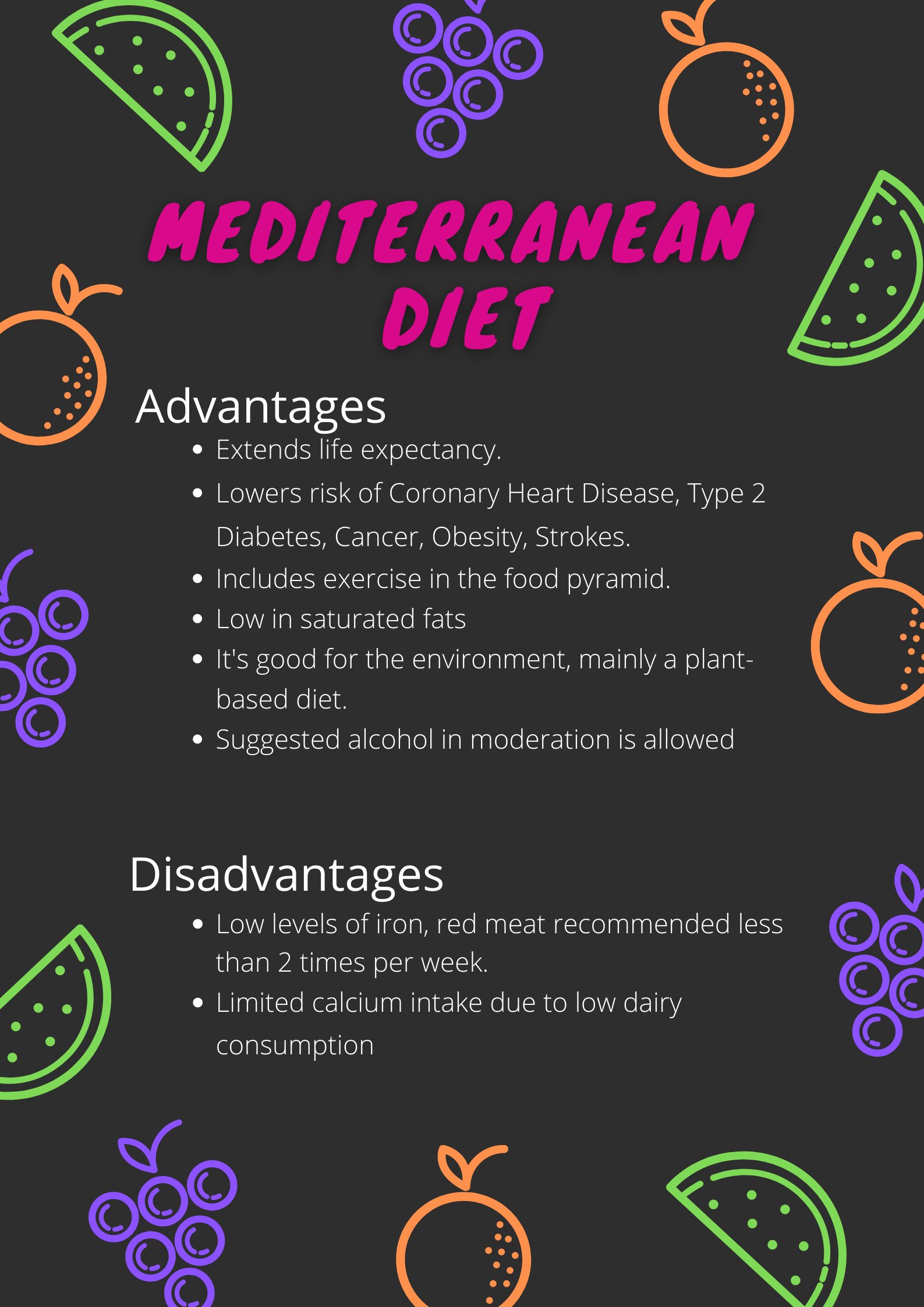Last Updated on January 23, 2025 by Arif Chowdhury
Imagine a diet that lets you enjoy rich olive oil, fresh fish, crunchy vegetables, and even a glass of red wine—all while promising to improve your heart health and help you live longer. Sounds perfect, right? That’s the Mediterranean diet in a nutshell.
But before you hop on board, it’s important to ask: is this diet really right for you?
Despite its long list of benefits, it’s not all sunshine and olives. In this article, we’ll break down the potential risks and downsides so you can make an informed decision about whether this eating style fits your lifestyle.
What is the Mediterranean Diet?
The Mediterranean diet is inspired by the traditional eating habits of people from countries like Greece, Italy, and Spain. It emphasizes whole foods, healthy fats, lean proteins, and an abundance of fresh fruits and vegetables.
Key Features of the Mediterranean Diet:
- High consumption of vegetables, fruits, whole grains, and legumes
- Olive oil as the primary fat source
- Moderate amounts of fish, poultry, and dairy
- Limited intake of red meat and processed foods
- Red wine in moderation
This diet has been linked to lower risks of heart disease, diabetes, and even Alzheimer’s. A 2019 study published in The New England Journal of Medicine found that people following the Mediterranean diet had a 30% lower risk of heart-related issues compared to those on a standard low-fat diet.
Sounds amazing, right? But before you start stocking up on feta and olives, let’s take a closer look at the potential drawbacks.
The Downsides: Not Everyone Thrives on the Mediterranean Diet
1. It Can Be Expensive
One of the biggest hurdles of the Mediterranean diet is cost. High-quality olive oil, fresh fish, and organic produce don’t come cheap. According to a study by The Journal of Nutrition, eating a Mediterranean-style diet can cost up to 20% more than a typical Western diet due to the emphasis on fresh, whole foods.
If you’re on a tight budget, this diet might require some creative meal planning and substitutions, such as opting for canned fish instead of fresh or buying in bulk when possible.
2. Not Ideal for People Who Prefer a Low-Fat Diet
While healthy fats like olive oil and nuts are great for heart health, they are still high in calories. If you’re used to a low-fat diet or are trying to lose weight, the calorie-dense nature of the Mediterranean diet could be a drawback. A single tablespoon of olive oil contains 120 calories, and it’s easy to go overboard without realizing it.
3. Potential for Nutrient Imbalances
The Mediterranean diet is naturally lower in dairy, which could be a concern for those needing higher calcium and vitamin D intake. If you don’t eat enough dairy alternatives, you might risk deficiencies over time.
Similarly, while the diet promotes whole grains, some people may struggle with bloating or digestive discomfort, especially if they’re sensitive to gluten or fiber-rich foods.
4. It’s Not a Quick Fix
If you’re looking for fast weight loss, the Mediterranean diet may not be the best choice. This is more of a long-term lifestyle change rather than a quick way to shed pounds. Many people see gradual improvements in their health over months or years rather than weeks.
A study published in The American Journal of Clinical Nutrition found that people on the Mediterranean diet lost weight at a slower rate compared to those on low-carb or keto diets. While it’s sustainable and promotes long-term well-being, it’s not a magic bullet for rapid results.
5. Requires Cooking and Meal Prep
If you’re someone who relies on convenience foods, the Mediterranean diet could feel like a challenge. It emphasizes home-cooked meals with fresh ingredients, which means more time spent in the kitchen. Meal prepping and planning become essential to avoid falling back into processed food habits.

Who Should (and Shouldn’t) Try the Mediterranean Diet?
This Diet May Be Right for You If:
✔️ You love fresh, whole foods and enjoy cooking
✔️ You’re looking for a heart-healthy, long-term eating plan
✔️ You prefer a balanced approach rather than strict calorie counting
✔️ You don’t mind spending a bit more on quality ingredients
You Might Struggle With This Diet If:
❌ You have a tight food budget and need affordable meal options
❌ You prefer a low-fat or high-protein diet for weight loss
❌ You don’t have time (or patience) for cooking fresh meals regularly
❌ You have dietary restrictions that make Mediterranean staples difficult to eat (e.g., lactose intolerance, gluten sensitivity)
Final Thoughts: Is It Worth Trying?
So, should you jump on the Mediterranean diet bandwagon? The truth is, it depends on your personal lifestyle, food preferences, and health goals.
For many, this diet provides a sustainable and enjoyable way to eat well and improve overall health. However, it’s not without its challenges. It requires a commitment to fresh, whole foods, a willingness to cook, and an understanding that results come gradually.
If you’re interested but hesitant, consider trying a modified version. Start by incorporating more olive oil, fish, and vegetables into your meals while cutting back on processed foods. You don’t have to go all-in overnight.
At the end of the day, no diet is one-size-fits-all. The Mediterranean diet has a lot to offer, but whether it’s right for you comes down to your personal needs and lifestyle.
